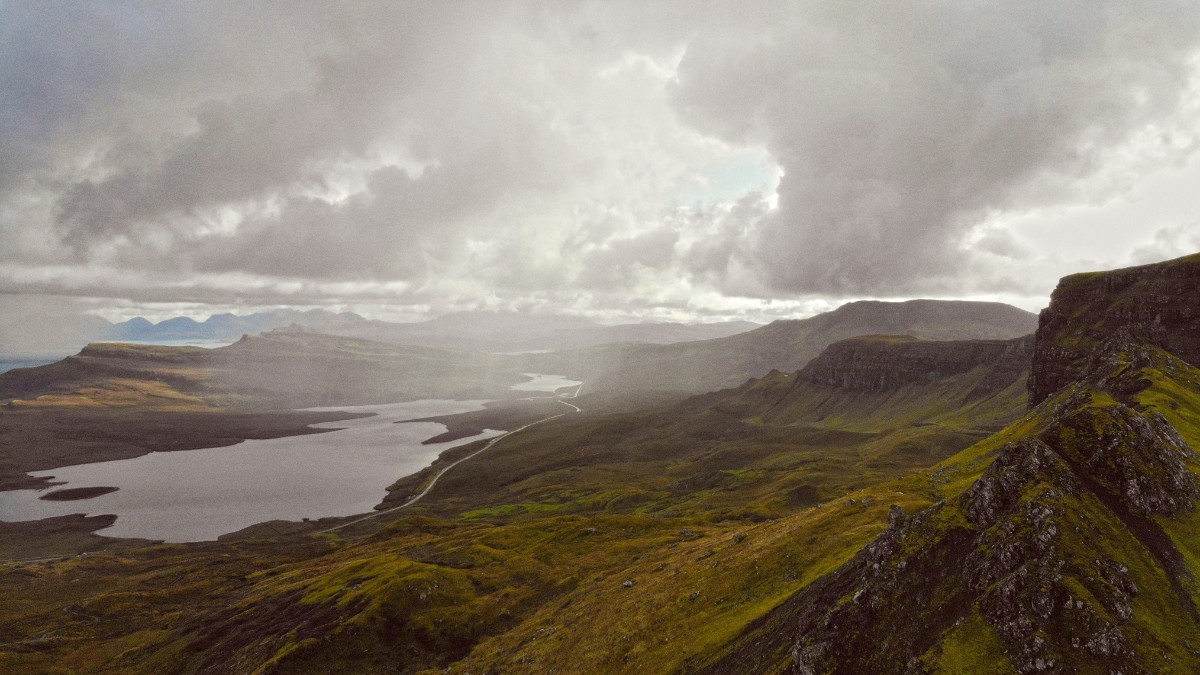
Scotland, UK
The Western Isles experience a temperate, oceanic climate, shaped by the North Atlantic Current. This weather pattern results in relatively mild winters and cool summers, but also brings frequent precipitation and strong winds throughout the year.
Spring (April-May): Average temperatures range from 7-12°C (45-54°F). This period notes less rain than winter, with increasing sunshine. Winds can still be strong. Midges, tiny biting insects, begin to appear in late May, especially in still, damp conditions near water.
Weather shifts frequently; experiencing "four seasons in one day" commonly occurs. Strong winds often occur. Midges pose a nuisance from late spring to early autumn, specifically near water and in sheltered conditions. Always pack for various weather types.
Midges are tiny biting insects common from late spring to early autumn. They do not carry diseases but can cause itchy bites. Use a strong midge repellent like Smidge Midge Repellent. Wear long sleeves and trousers, especially during peak midge activity. A midge net finds utility in extreme cases or for sensitive individuals.
High Season
Warmest temperatures, longest daylight hours, best chance for clear skies, all tourist services operate fully, most ferry crossings are available, numerous local events and festivals take place.
Highest prices for accommodation and car hire. Book ferries and accommodation well in advance. Attractions are busiest, and midges are at their peak.
April-May & September-October
Fewer crowds, more competitive prices for accommodation, good light for photography, pleasant temperatures, opportunities for wildlife viewing, midges less severe in April and October.
Shorter daylight hours, some services may operate on reduced hours, weather can be more unpredictable with more rain and stronger winds. Ferry timetables may present fewer sailings.
November-March
Very few tourists, lowest prices, dramatic and wild landscapes, opportunity to experience true island life, good for storm watching and enjoying dark skies.
Coldest and wettest weather, very limited daylight, many tourist services are closed or operate on restricted hours. Ferry cancellations due to weather present greater likelihood.
Hiking & Beaches: Visit from June to August for the best weather. May or September present fewer crowds and good light for photography.
Wildlife Watching: Spring notes ideal conditions for migratory birds and breeding season. Summer provides chances to see puffins (until late July), seals, and occasional marine mammals. Autumn is good for raptors and observing the deer rut.
Shoulder seasons (April-May, September-October) supply dramatic skies and unique light for capturing the landscapes.
Summer months frequently feature local ceilidhs, Highland Games, and music festivals. Check local listings for dates.
Low season suitable for storm watching and dark sky enjoyment.
Midges are widespread in summer, decreasing in spring/autumn and less problematic in winter.
Shoulder season (May, early June, September) presents a good balance of weather, fewer crowds, and lower prices.
As part of the United Kingdom, visitors to the Western Isles meet standard UK visa and entry requirements.
Citizens of many countries, including the EU, USA, Canada, Australia, New Zealand, Japan, South Korea, and others, do not require a visa for tourism or short business visits up to 6 months. They enter as a "Standard Visitor."
Citizens of countries not on the visa-exempt list must apply for a "Standard Visitor visa" in advance through the UK Visas and Immigration (UKVI) website.
The Western Isles are a safe destination with low crime rates. Enjoy the islands' peaceful environment.
Plan your budget with care. The Western Isles may be slightly more expensive than mainland Scotland due to their remote location and associated transport costs for goods and services.
The currency used throughout the Western Isles, and indeed the entire UK, is the Pound Sterling (£, GBP). Major banks in Stornoway offer currency exchange services.
ATMs are available in larger towns like Stornoway, Tarbert, Benbecula, and Castlebay, but may appear scarce in smaller villages. Credit and debit cards (Visa, Mastercard) enjoy wide acceptance in hotels, larger shops, and most restaurants.
Daily Costs: £50 - £90 per person. Focus on self-catering, public transport (limited), walking, and free natural attractions. Hostel dorms or camping.
Accommodation from £25, self-catering meals, free attractions.
Limited public transport schedules, hitchhiking approached with caution.
Daily Costs: £90 - £180 per person. Enjoy B&Bs or guesthouses, a mix of self-catering and casual dining, and the utility of a rental car.
B&B from £60-£120, food £30-£60 daily, car rental useful.
Rental car costs (fuel and insurance) add to the budget.
Daily Costs: £180+ per person. Boutique hotels, high-end cottages, fine dining, and private tours or specialized experiences.
Accommodation from £150+, fine dining £70+ daily, private transfers.
Higher costs for premium experiences and comfort.
| Category | Description | Estimated Price Range |
|---|---|---|
| Accommodation | Hostel Dorm / Camping Pitch / B&B / Hotel | £10-£40 / £60-£120 / £80-£200+ (per night) |
| Meals | Cafe/Lunch / Pub Meal/Casual Dinner / Restaurant Dinner | £8-£15 / £15-£30 / £30-£60+ (per person) |
| Transportation | Return Ferry (Car+2) / Car Rental / Local Bus | £80-£150 / £40-£80 per day / £2-£10 per journey |